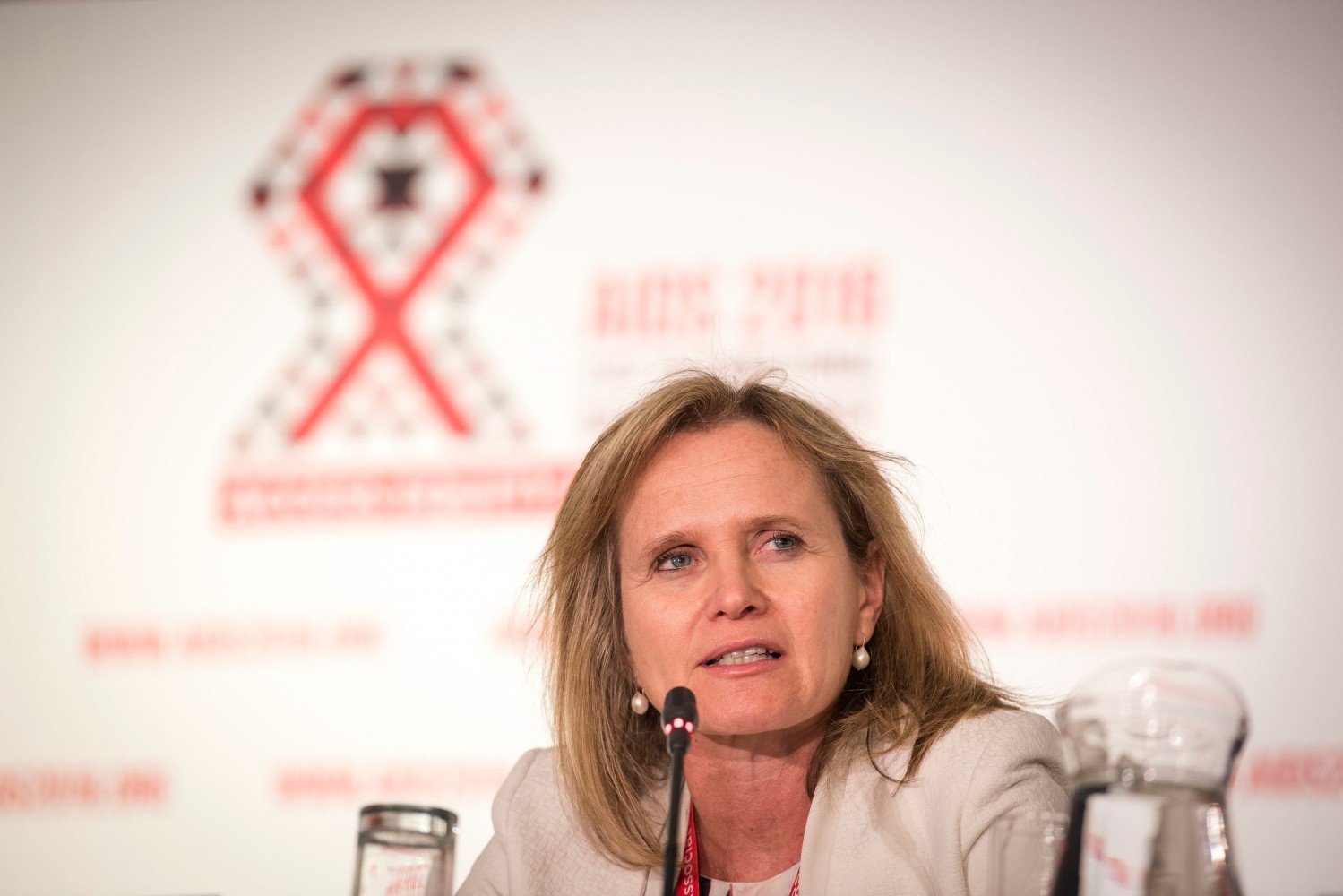02 Mar 2018
Sharon Lewin announced as co-chair of the IAS Towards an HIV Cure initiative
The International AIDS Society (IAS) today announced the appointments of Professor Sharon Lewin and Dr Mark Dybul as the new Co-Chairs of the Towards an HIV Cure Advisory Board. The outgoing Co-Chairs are long-time leaders in HIV research, Jack Whitescarver and Françoise Barré-Sinoussi.

Lewin is an IAS Governing Council member, Director of the Peter Doherty Institute for Infection and Immunity, and Professor of Medicine at the University of Melbourne, Australia. Dybul is Faculty Co-Director of the Center for Global Health and Quality and Professor in the Department of Medicine at Georgetown University Medical Center in Washington D.C, USA. He recently stepped down from a five-year tenure as Executive Director of the Global Fund To Fight AIDS, Tuberculosis and Malaria.
'I am honoured to be taking the IAS Towards an HIV Cure initiative forward at a time when there is renewed excitement in the field,' Lewin said. 'Since 2012 we have come a long way. The rapid advances in HIV cure research have presented clear opportunities for increased engagement between HIV researchers and other disciplines.
'We've most recently seen the coming together of the HIV cure and cancer fields, and I have no doubt that as we accelerate the pace of discovery in HIV cure research, we will continue to see more collaborations of this kind. That we are at this point in such a short timeframe is in large part due to the tremendous leadership of our previous Co-Chairs - on behalf of the IAS, I would like to thank Jack Whitescarver and Françoise Barré-Sinoussi for their commitment.'
The toolbox of interventions for fighting the HIV pandemic has grown massively since Barré-Sinoussi co-discovered the virus in 1983. A cure has remained beyond our grasp, but research to develop a cure for HIV or long-term remission has been promising. It has spurred researchers, advocates and community members to continue making progress.
'We've seen extraordinary progress made in treating and preventing HIV over the past 35 years, but in the long term, researchers and policy makers understand that to seriously bend the trajectory of the epidemic, we are going to need something approximating a cure for HIV,' Dybul said.
'The IAS Towards an HIV Cure initiative is to be lauded for ensuring that HIV cure research has a seat at the global health table. I am delighted to be part of this next phase and look forward to working with such a remarkable group of scientists and policy makers in the coming years.'
The Towards an HIV Cure initiative is committed to leveraging a well-informed, multidisciplinary network of stakeholders to advocate for and ensure the prioritization of HIV cure in the global health agenda. It is overseen by a Towards an HIV Cure Advisory Board of experts representing governments, UN agencies, civil society organizations and foundations. The board provides strategic advice and engages stakeholders in the initiative's long-term strategy to inform global policy, programmes and funding.
To that end, the mission of the IAS Towards an HIV Cure initiative is to drive concerted efforts to accelerate global scientific research and engagement towards a cure for HIV.
The first Towards an HIV Cure: Global Scientific Strategy was published in Nature Reviews Immunology in 2012. This, with its Full Recommendations, presented the first global overview and strategic plan for HIV cure research.
Since 2012, the initiative has convened its annual Towards an HIV Cure Symposium to provide researchers with an opportunity to present and discuss novel strategies for advancing and overcoming challenges in HIV cure research.
This year, the IAS is partnering with international and local civil society organizations to organize an interactive one-day research literacy workshop as an AIDS 2018 pre-conference event to provide accessible information on current research directions, emerging collaborations with fields beyond HIV, and challenges for an HIV cure.
The initiative has also focused its efforts on advancing the HIV cure field in resource-limited settings. An Advocacy-for-Cure Academy will be organized in Uganda and a Research-for-Cure Academy will take place in South Africa; these award fellowships to outstanding candidates interested in working in HIV cure in resource-limited settings.


